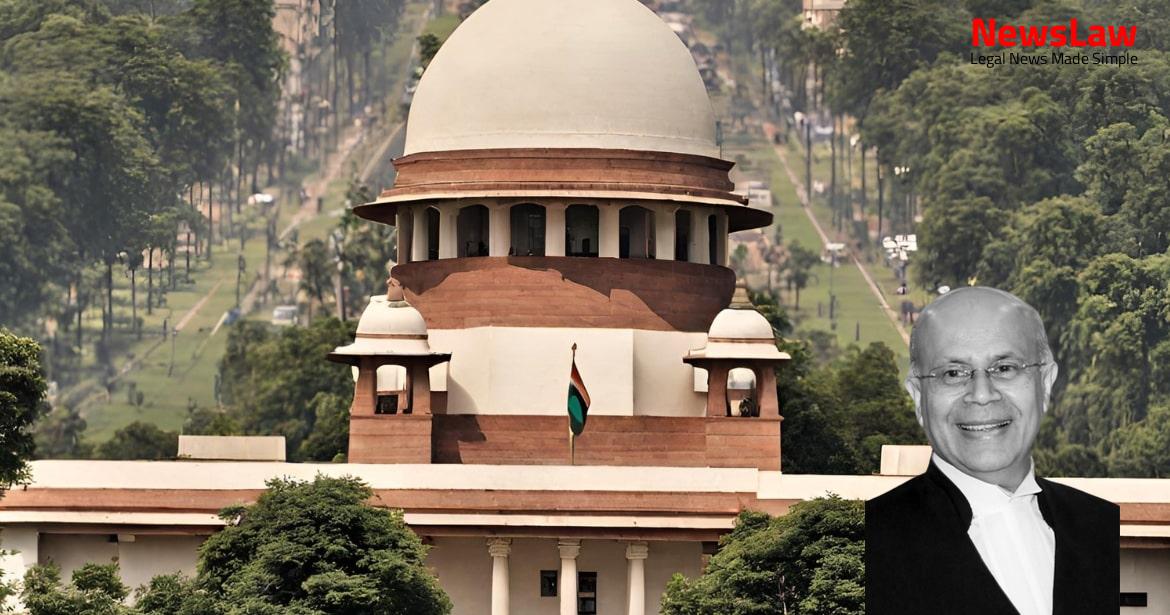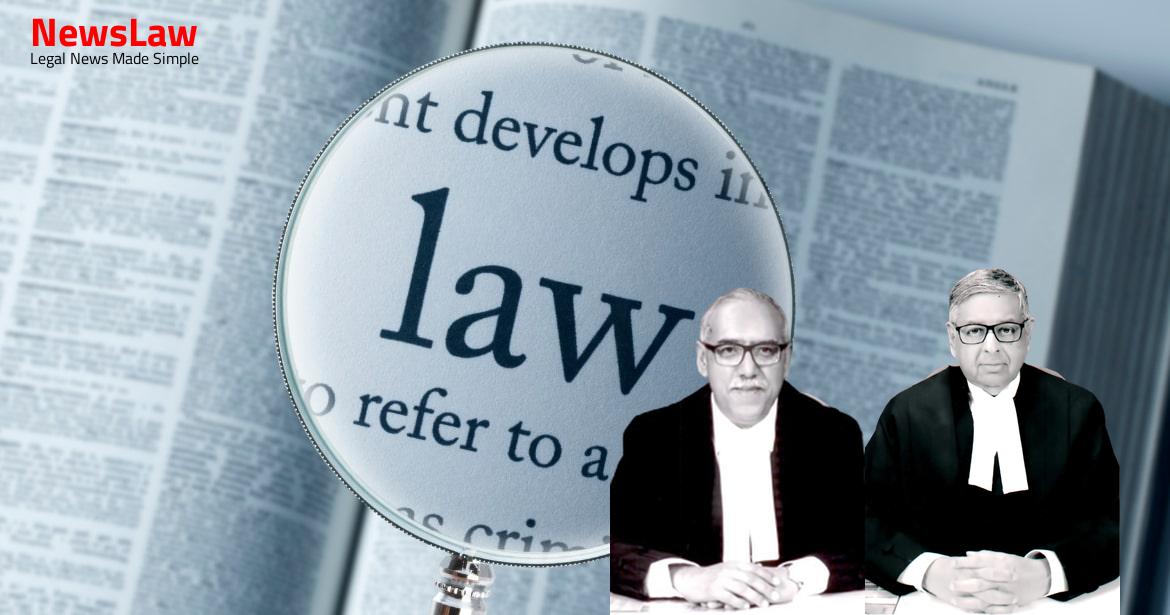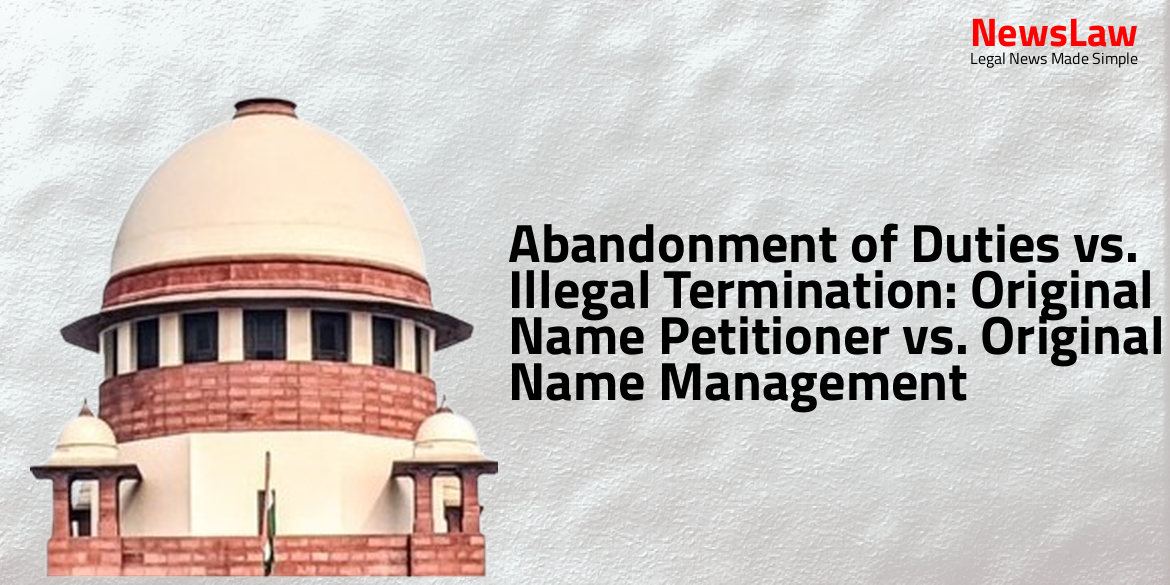In a recent court case, the High Court delved into the intricate legal aspects surrounding the validity of alienation in joint Hindu family property. The court analyzed the applicability of the Limitation Act and the requirements for a transfer of property to be considered valid under Hindu law. Let’s explore the key insights from the court’s legal analysis in this complex case.
Facts
- The plaintiff filed a suit against his father and another individual for partition and separate possession of his one-third share in the joint family property.
- The plaintiff also sought a declaration that a settlement deed executed by his father in favor of the other individual was null and void.
- The Trial Court, after considering the evidence, dismissed the suit.
- The plaintiff then filed a first appeal against this decision.
- Evidence and documents were produced by both parties to support their contentions.
- The second defendant adopted the written statement filed by the first defendant.
- The plaintiff’s claim was that the property belonged to the joint family consisting of himself, the first defendant, and another individual.
- It was argued that the first defendant had no right to transfer the property to the second defendant as he was not a coparcener or a member of the family.
- The High Court dismissed the appeal after hearing the learned counsel for the parties and considering the materials on record.
- K.C. Laxmana, the second defendant, challenged the judgment of the Appellate Court in the High Court.
Also Read: Analysis of Legitimate Expectation in Public Law
Issue
- The first question to be considered in the case is whether the suit filed by the plaintiff was barred by limitation.
Also Read: Legal Analysis on Recovery of Excess Payments in Service
Arguments
- Mr. Anand Sanjay M. Nuli contended that the suit was not barred by limitation according to Article 58 of the Limitation Act, 1963.
- He argued that the transfer of property by way of settlement was for a pious purpose, which is legally permissible.
- The counsel submitted that the High Court erred in upholding the judgment of the Appellate Court.
- Mr. Arvind Varma, the learned senior counsel for the respondent/plaintiff, supported the judgment of the High Court.
- The alienation by way of gift of joint family property made by the first defendant to the second defendant was considered void.
- The period of limitation for challenging the alienation is twelve years from the date the alienee takes possession of the property under Article 109 of the Second Schedule to the Limitation Act.
- Mr. Varma argued that the suit was not barred by time as per the applicable limitation period.
Also Read: Presumption of Marriage in Long-term Cohabitation Cases
Analysis
- Manager of a joint Hindu family property can only alienate property in specific situations – legal necessity, benefit of the estate, or with consent of all coparceners.
- Where alienation is not made with consent of all coparceners, it is voidable at the instance of coparceners whose consent was not obtained.
- In the case presented, the transfer of property under Ex.P-1 was not for a pious purpose, as it was a gift made ‘out of love and affection’ and not for a charitable or religious purpose.
- The limitation for filing the suit was not expired, as per Article 109 which applies when a son challenges the father’s alienation of ancestral property.
- The plaintiff did not consent to the gift of joint family property to the second defendant, making it voidable under Hindu Law.
- Gifts of ancestral property must be for ‘pious purposes,’ which are typically charitable or religious in nature.
- The decisions of Hindu law allow gifts to strangers by a manager of joint Hindu family for pious purposes, but not for personal reasons like ‘love and affection.’
- A Hindu father or any other managing member has the power to make a gift of ancestral property within reasonable limits for pious purposes.
- A gift by the father-in-law to the daughter-in-law at the time of marriage is not considered a pious purpose.
- The position of a gift by the father or his representation to a daughter at the time of her marriage may vary.
- No gift of ancestral immovable property can be made on the ground of pious obligation by a son to his wife or daughter-in-law.
- Even a father-in-law cannot make a gift of ancestral immovable property to his daughter-in-law at the time of her marriage.
- A gift to a stranger of a joint family property by the manager of the family is considered void.
- The expression ‘pious purposes’ may include charitable purposes, but there is no authority to sustain a gift to a stranger on the grounds of charity.
- There is no authority in Hindu law to support the proposition.
- The argument presented lacks a basis in Hindu law.
Case Title: K.C.LAXMANA Vs. K.C.CHANDRAPPA GOWDA (2022 INSC 432)
Case Number: C.A. No.-002582-002582 / 2010



